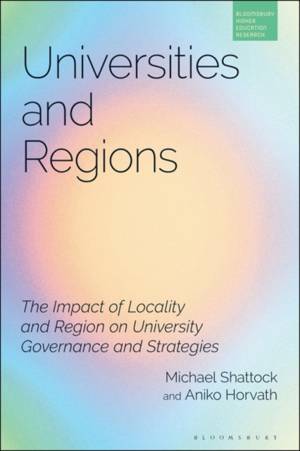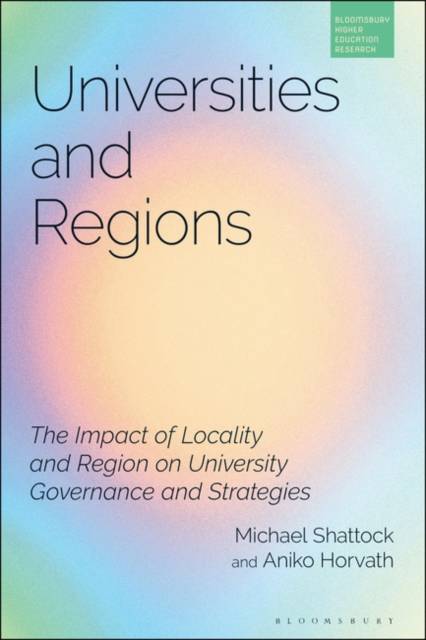
Door een staking bij bpost kan je online bestelling op dit moment iets langer onderweg zijn dan voorzien. Dringend iets nodig? Onze winkels ontvangen jou met open armen!
- Afhalen na 1 uur in een winkel met voorraad
- Gratis thuislevering in België vanaf € 30
- Ruim aanbod met 7 miljoen producten
Door een staking bij bpost kan je online bestelling op dit moment iets langer onderweg zijn dan voorzien. Dringend iets nodig? Onze winkels ontvangen jou met open armen!
- Afhalen na 1 uur in een winkel met voorraad
- Gratis thuislevering in België vanaf € 30
- Ruim aanbod met 7 miljoen producten
Zoeken
Universities and Regions
The Impact of Locality and Region on University Governance and Strategies
Michael Shattock, Aniko Horvath
€ 203,95
+ 407 punten
Omschrijving
This book explores the impact of localities and regions on universities and shows how the diversity of the higher education landscape is critically affected by the geophysical character of regions and their differentiated economies and cultures; regional inequalities bear heavily on universities' strategy-making. A study of the interrelationship between higher and further education argues that from a regional perspective a change to a tertiary education system in England (following Wales) would create the conditions for better local and regional coordination. Universities make a significant contribution to 'levelling up' through technology transfer and the creation of innovation hubs but the contribution of locally or regionally based students who on graduation return to disadvantaged communities rather than seek employment elsewhere should be recognised also as a longer term step to redressing regional inequality. The book argues strongly that the time has come to decentralise the governance of a re-aligned tertiary system to regions and identifies the move to create metro mayors and combined authorities as providing the appropriate vehicle to release new initiative from regional sources. It cites the success of decentralisation to Scotland and Wales as offering relevant models for scrutiny. The authors draw on 12 UK widely differentiated university case studies, a survey of further education and a study of three continental European comparators (Germany, Ireland and Norway) to develop the argument.
Specificaties
Betrokkenen
- Auteur(s):
- Uitgeverij:
Inhoud
- Aantal bladzijden:
- 184
- Taal:
- Engels
- Reeks:
Eigenschappen
- Productcode (EAN):
- 9781350337589
- Verschijningsdatum:
- 4/05/2023
- Uitvoering:
- Hardcover
- Formaat:
- Genaaid
- Afmetingen:
- 156 mm x 234 mm
- Gewicht:
- 430 g

Alleen bij Standaard Boekhandel
+ 407 punten op je klantenkaart van Standaard Boekhandel
Beoordelingen
We publiceren alleen reviews die voldoen aan de voorwaarden voor reviews. Bekijk onze voorwaarden voor reviews.











